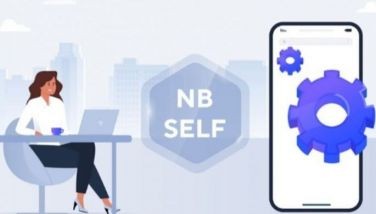Why some people trust TikTok advisors

Here is a familiar parable you may have encountered:
A professor visited an old master seeking advice. “I have come to ask you to teach me,” the professor said.
As the master began to teach, the professor repeatedly interrupted, sharing his opinions and stories. The master suggested they take a break for tea. He poured the professor a cup, and once it was full, he kept pouring, causing the tea to overflow onto the table, the floor and the professor’s robes.
“Stop!” cried the professor, “Can’t you see the cup is already full?”
“Precisely,” the master replied, “You are like this cup, so full of ideas that nothing more will fit in. Come back to me with an empty cup.”
Today, the mind is fed and full of information that bombards us all day. Why does living in the so-called Information Age only seem to make life more confusing?
Many young people (and some not-so-young) trust TikTok astrologers and larger-than-life celebrities, blacking out on nostalgic illusions of the past and cozying up to conspiracy theories. It is like the human mind is clashing with the information age.
Author and linguist Amanda Montell says, “It can feel exhausting just to exist as a human in the world right now, but that’s not a personal problem. In this ever-restless age, many of us have become ‘magical overthinkers.’”
Why do people turn and trust TikTok advisors and follow these social media “experts” even though much of the stuff they churn out borders on the ridiculous? Montell shares her insights:
Cognitive biases are a useful lens to understand other people’s bizarre behaviors (and our own)
Cognitive biases are psychological shortcuts we take both automatically and unconsciously. They are deep-rooted and sometimes ancient. They underlie so many of the mysterious, nonsensical choices we see people making these days – from people opting not to get vaccinated because a YouTuber in palazzo pants said it would “downgrade her DNA” to a local episode featuring a young “millionaire” challenging the uselessness of pursuing formal education but operating on street-smart shrewdness to succeed in life.
Each bias is an illusion that allows us to maximize our limited time, mental capabilities and desire for meaning. The trouble is that they dominate our decision-making so naturally that we need to notice how many have become counterproductive. Each different cognitive bias can be used as a lens to examine some confounding irrationality within ourselves. Developing an awareness of our cognitive biases is a way to be more compassionate toward others’ irrationalities and skeptical of our own. It might be the only way to survive this age.
Science literacy doesn’t make us better at discerning facts
Here’s a perfect example of how more information doesn’t help the world make more sense: A 2011 Yale experiment on climate change perceptions concluded that becoming more scientifically literate made subjects less willing to entertain views they disagreed with. Why? Additional information just made them better at defending their existing beliefs.
This is an example of confirmation bias on steroids. Using facts to try and force other people’s minds to change is only sometimes, as a behavioral economist might say, a rational use of one’s limited time and cognitive resources. There is good news, however, because a 2021 study published in Philosophical Transactions of the Royal Society found that when people trained to notice their thought processes, they could strengthen their defenses against misinformation and dogma.
Celebrity worship is one of the ways delusion has gone mainstream
During this era of mass loneliness and loss of identity, young people are increasingly investing in parasocial relationships with celebrities, whom they worship not just as entertainers but as saviors.
A 2021 study published in the North American Journal of Psychology measured that celebrity worship had increased dramatically since two decades prior. A 2014 clinical examination concluded that high levels of celebrity worship are associated with psychological difficulties, including “concerns about body image, greater proneness to cosmetic surgery, sensation-seeking, cognitive rigidity, identity diffusion and poor interpersonal boundaries.” Among other observed struggles were depression, anxiety, dissociation, narcissistic personality tendencies, thirst for fame, compulsive shopping and gambling, stalking behavior, excessive fantasizing (to the point of social dysfunction), addiction and criminality.
Faced with a sudden glut of information, cognitive biases cause the contemporary mind to overthink and underthink the wrong things. This is why the ability to develop Critical Thinking and better Emotional Intelligence are key critical leadership skills that everyone must develop.
Sure, the empty mind must be filled, but what if the cup does not know how to manage and filter the information entering it? This is an interesting thought to consider.
(Francis Kong’s “Inspiring Excellence” podcast is now available on Spotify, Apple, Google, or other podcast streaming platforms.)
- Latest
- Trending




























